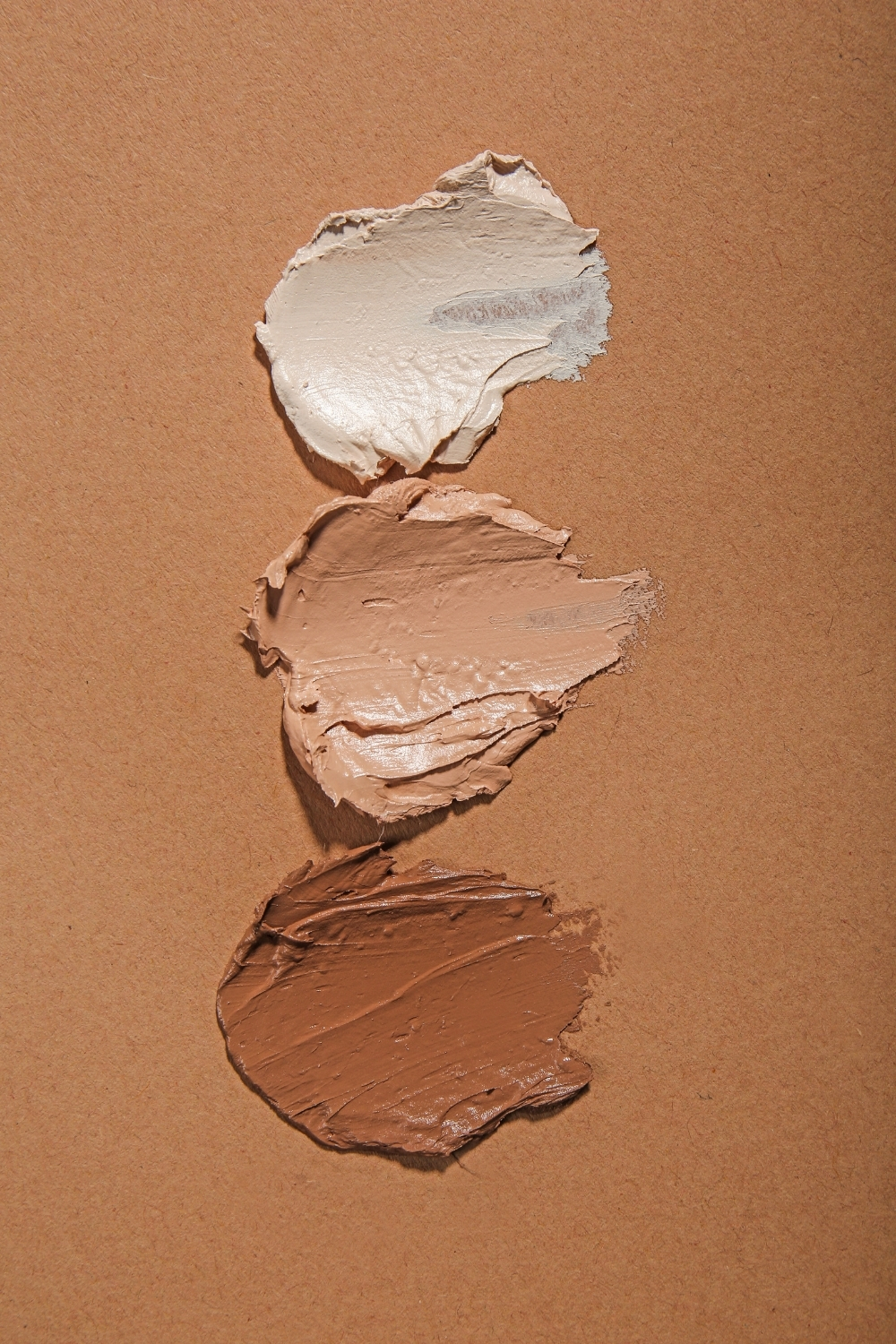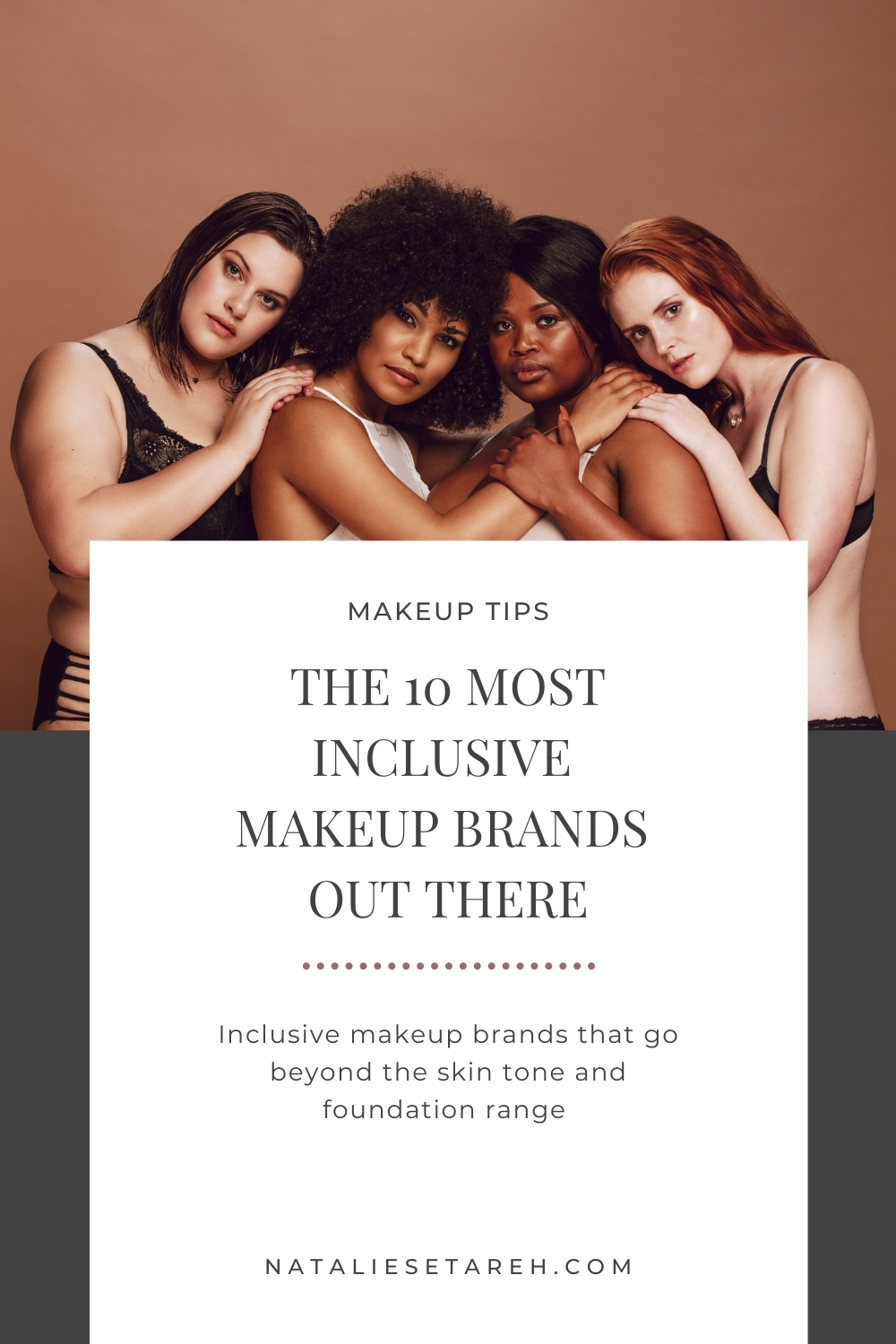
This post was originally published on November 19, 2020. It has been updated on April 3, 2024.
Makeup is for everyone. It’s a tool for self-expression, a confidence booster, and a way to have fun. Yet, for far too long, the beauty industry hasn’t reflected that reality. In its ideal state, inclusivity in makeup goes beyond just skin tone. It encompasses age, gender, and even ability.
Since I began my journey as a makeup artist in 2014, inclusivity has been at the heart of everything I do.
This passion for inclusivity is especially important to me living in Germany, where many large retailers and department stores simply don’t carry complexion products that cater to darker skin tones. This is despite a large and vibrant immigrant population who are eager to find makeup that works for them. As a matter of fact, I’m almost always the only makeup artist people can find in who has experience with deeper complexions. This is a frustrating situation, and a clear example of how far the beauty industry still has to go globally. (I have also written about the beauty industry in South Korea and have personally experienced how my skin tone is too dark for many of their mainstream foundations. If you want to learn more, click here.)
Last but not least, another area where inclusivity needs a major overhaul is skincare. The beauty industry has a bad habit of “genderfying” skincare products, which simply doesn’t make sense. Our skin types don’t have a gender! This hyper-feminization of skincare has unfortunately discouraged many men from taking care of their skin, which is crucial for overall health and appearance.
Thankfully, there are many beauty campaigns that are working to break down these barriers and celebrate inclusivity.
Dove’s “Real Beauty” campaign, which launched in 2004, featured women of various shapes, sizes, ages, and ethnicities. This campaign was a major turning point in how the beauty industry represented women.

Covergirl’s recent campaign featuring the 71-year-old model Maye Musk is another fantastic example of inclusivity in age representation.

The Evolution of Inclusive Beauty: From Advocacy to Industry Standard
The rise of inclusive makeup brands has had a ripple effect throughout the beauty industry:
-
The success of Fenty Beauty and other inclusive brands paved the way for innovative indie lines catering to people of color (POC). These indie brands often have founders from diverse backgrounds who understand the specific needs of underrepresented communities. As such, they tend to offer a wider range of shades, long-wear formulas, and lightweight textures.
-
Mainstream Retailer Expansion: This shift has impacted mainstream U.S. retailers like Sephora and Ulta Beauty, who are now expanding their selection of inclusive makeup lines. Previously limited shelf space now features dedicated sections for these brands.
Challenges and Looking Forward
Despite the significant progress, there’s still room for improvement. Finding the perfect shade match can be difficult, especially for deeper skin tones with complex undertones. Additionally, some brands may offer a wide shade range but lack consistency across their product lines (like blush, bronzer, and highlighter).
Here’s what we can expect in the future:
-
A Continued Focus on Innovation: Beauty companies will continue to develop new technologies to create even more inclusive shade ranges and formulas.
-
Education and Inclusivity in Marketing: As much as I hope that brands will prioritize helping consumers know which colors work for them and what their undertone is (they won’t but I teach that in my course!), I do hope beauty marketing will continue to showcase diverse models and real people (like the ‘models’ I use in my book.)
Now that we’ve established the importance of inclusivity in makeup and the different ways it can be achieved, let’s dive into some of the brands leading the charge:
1. Fenty Beauty
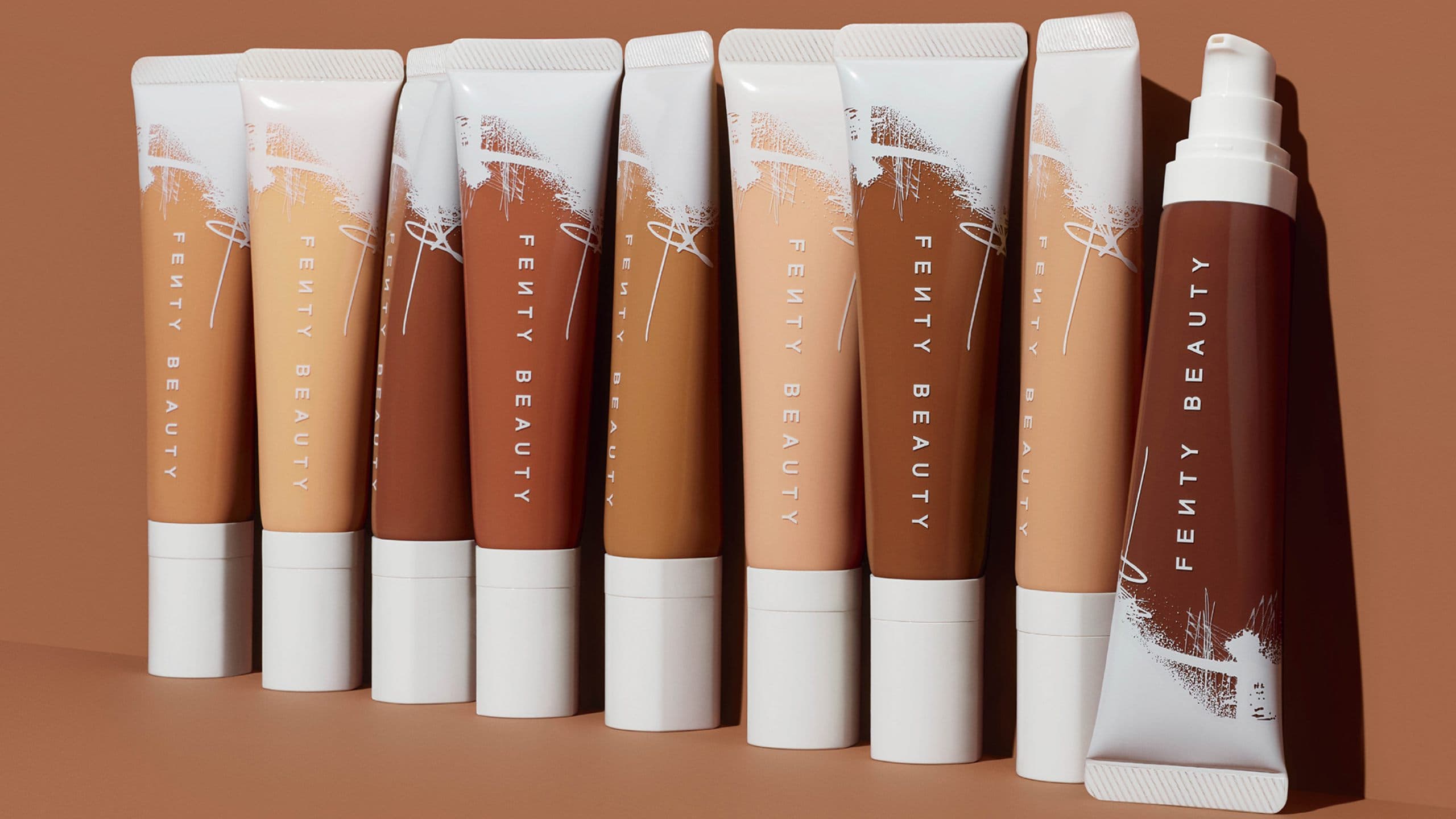
Source: Fenty Beauty
Well, Fenty Beauty is that one inclusive makeup brand that appears in every single list of inclusive makeup brands! But, without a doubt, it deserves the spotlight! In 2017, Rihanna – yes, that Rihanna – launched a collection of 40 different shades of foundation that match basically every skin tone!
We all know how complex it is to find a complexion that matches our skin – especially as people with darker skin tones – so having a mainstream beauty brand to create that big range of tones has ignited the sparkle that would cause a big shift in the makeup industry as a whole. As a sign that this change was way overdue, the brand’s darker tones flew off the shelves right away.

Source: Fenty Beauty
2. Maybelline
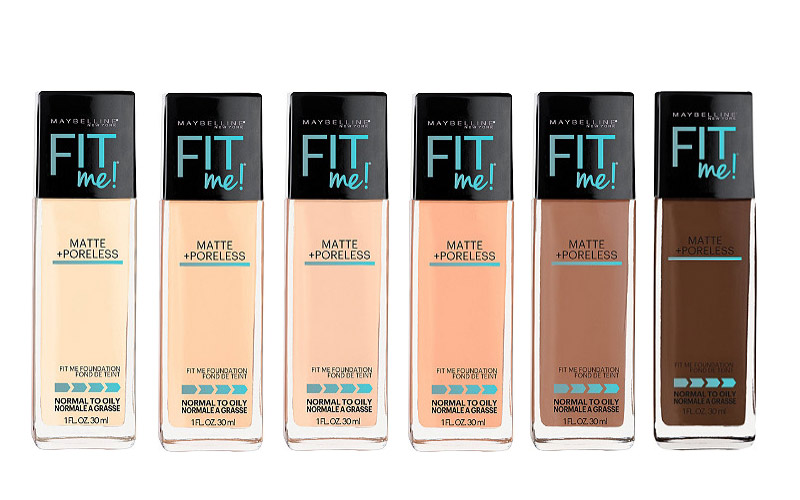
Source: Maybelline
If you’re looking for a drugstore brand that offers different shades of foundation, you’ve found yours. Maybelline, one of the brands owned by the huge L’Oreal, added 16 foundation shades to its Fit Me collection and then expanded it to 40. It also happened in 2017 – possibly not a coincidence.
Since Maybelline is an affordable brand compared to those more exclusive and premium ones that offer a wide range of shades, it’s now inclusive in its price and shades too.
3. M.A.C Cosmetics
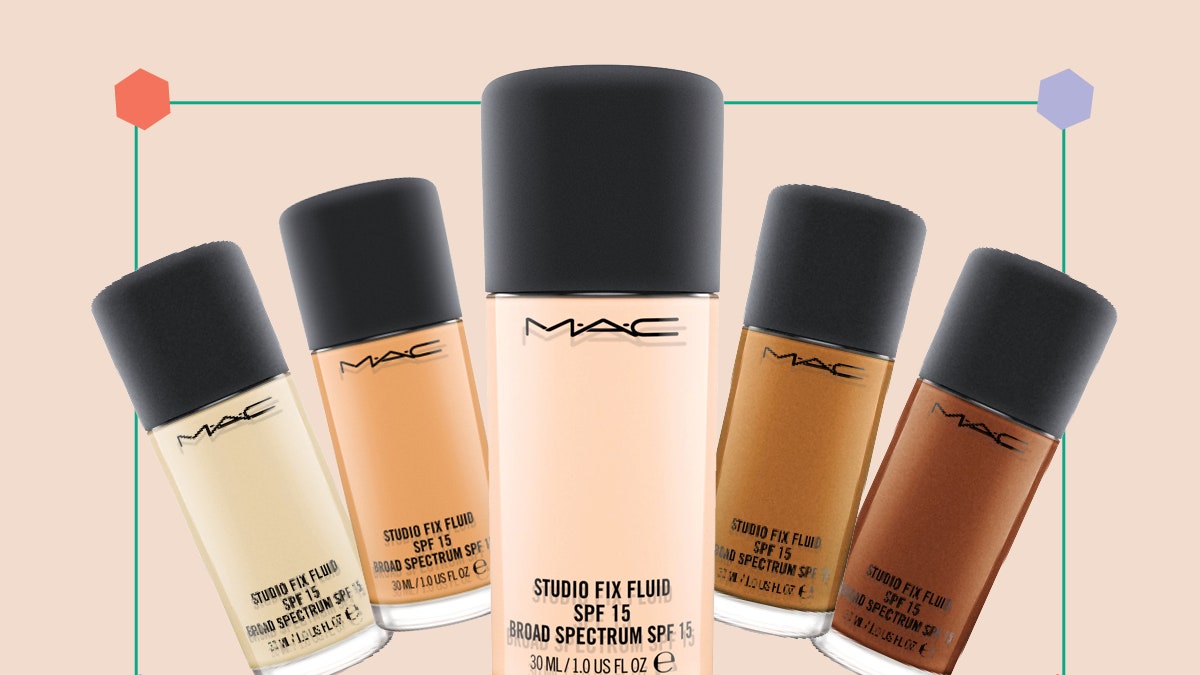
Source: Glamour
M.A.C. Cosmetics doesn’t need any introduction, but did you know that they are an LGBTQ-owned makeup brand that has been inclusive since the very beginning?! In 1994, they created the M.A.C. AIDS fund intending to support people around the world affected by H.I.V., raising more than 400 million dollars in sales of their Viva Glam collection. In fact, the first Viva Glam spokesperson was RuPaul, a drag queen icon. And up till now, the company employs several queer folks.
Apart from the inclusivity in that sense, M.A.C is also the owner of 53 shades of Studio Fix Powder Plus, one of the brand’s best-selling products, and 63 shades in the liquid foundation from the collection Studio Fix Fluid.
Their inclusivity is taken very seriously as part of their philosophy, which states, “All Ages, All Races, All Sexes.”
4. MOB Beauty
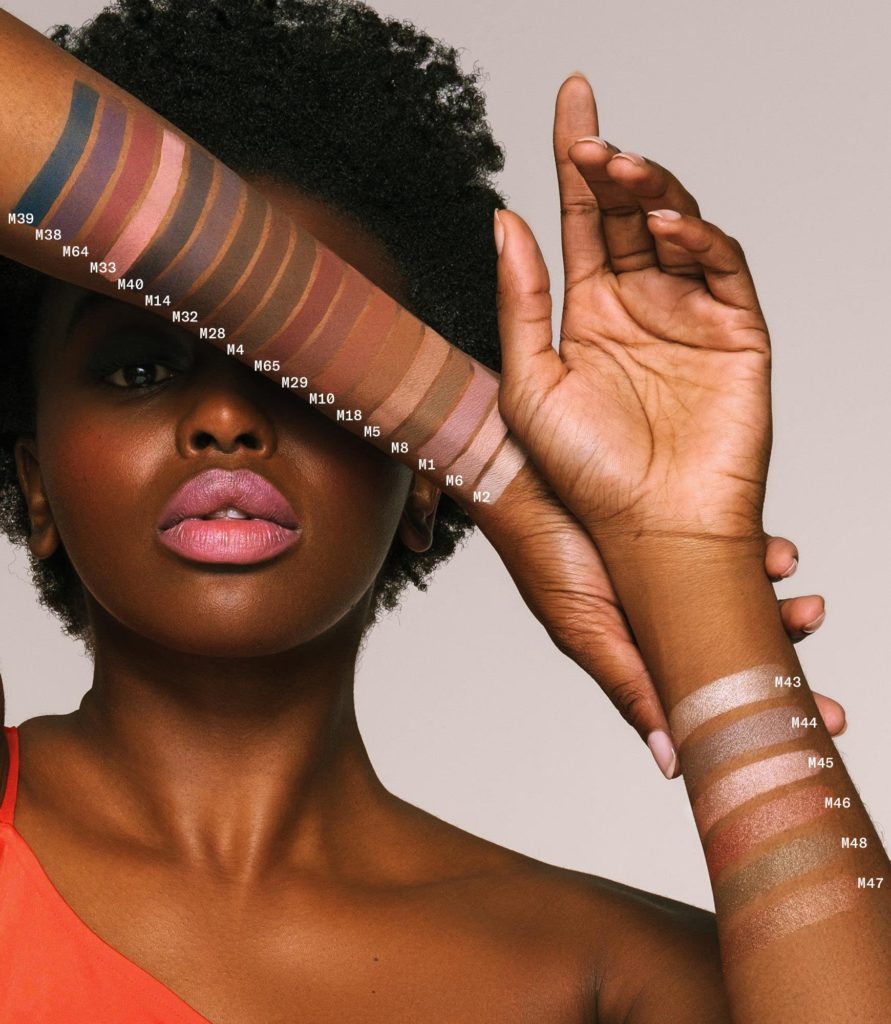
Source: mobbeauty.com
MOB Beauty‘s tagline is “Makeup for a Better World” and they work very hard to minimize unnecessary packaging and be as sustainable when possible. They even inject a special type of resin into their lipstick tubes so it can be more easily identified by the infrared sensor that sorts recyclable plastics (dark plastics are often missed by the sensors, so this resin ensures more of their tubes are properly recycled).
Of course, this post isn’t about sustainability, it’s about inclusiveness, and that’s another thing they’re great at. They do their part to make a positive impact socially. One example of this is their partnership with #HashtagLunchbag to provide meals for people who are experiencing hunger.
Looking at their products, you can see that they value inclusivity in their shade range. especially their face products.
5. Mented Cosmetics
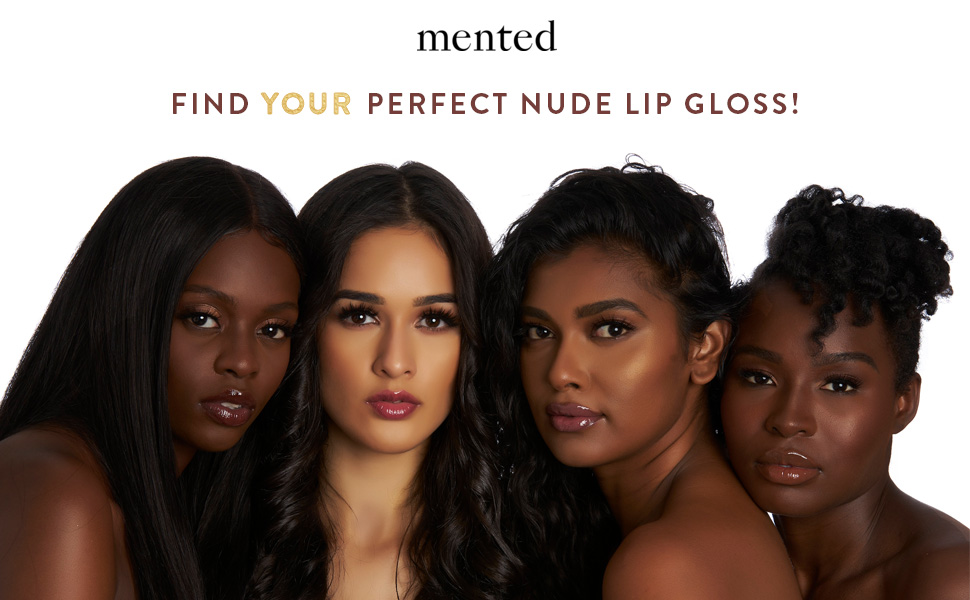
Mented Cosmetics – where “mented” is short for “pigmented” – was created going against what most makeup brands do. They actually focused on the “less is more” kind of makeup, creating products that give customers that subtle “no makeup” look.
They have started with their semi-matte lipstick collection, which has 9 nude shades. By the way, I absolutely love their product page, where they show how the different shades of lipstick look in models from different skin tones. Their Everyday Shadow Palette is also super beautiful. It’s really for those looking for a basic yet beautiful look that fits all skin tones.
According to its founders, the brand’s goal is to make women of color feel prioritized in the world of beauty. Isn’t that great?!
6. Bobbi Brown Cosmetics
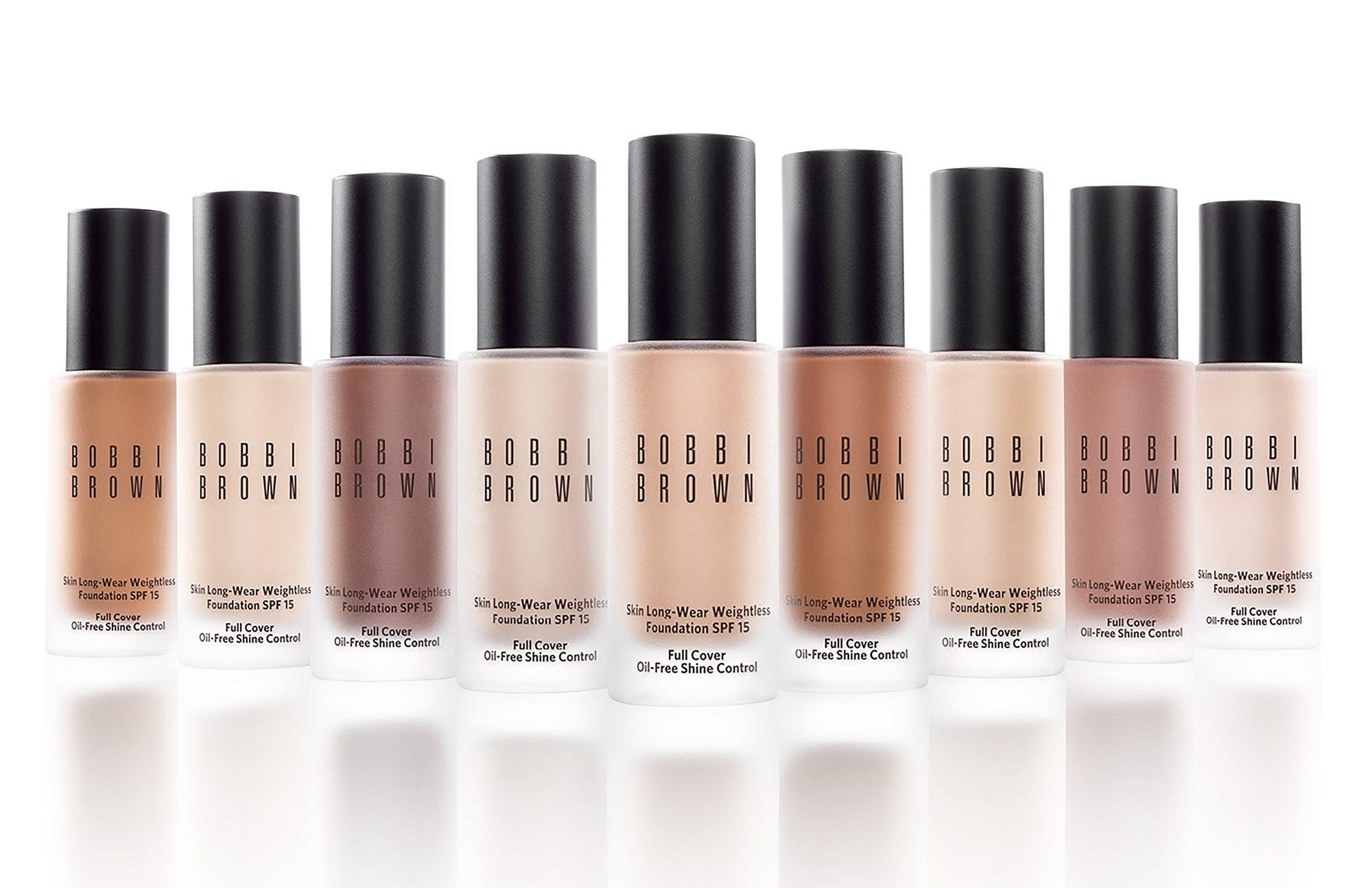
Bobbi Brown is a great makeup artist and inspiration. She founded her beauty brand company in 1991, going against the “more is more” makeup trend in the 80’s. Even though since launching a new line called Jones Road Beauty, Bobbi Brown remains a cornerstone for makeup wearers around the world.
The Bobbi Brown motto is that inclusivity has always been their standard, reassured by their 42 shades of foundation.
However, the most powerful message from Bobbi Brown herself is that the secret of beauty is simple; “all you need to do is be who you are.”
And she really means it, as she is always talking about how people often don’t even need to contour, etc.
For her, makeup is about highlighting the best you have, not completely changing your face. And I couldn’t agree more!
By the way, Bobbi Brown also has an amazing makeup book. It’s in my list of the Top 10 Makeup Books You Need to Read.
7. Covergirl
I love brands that take inclusivity beyond the skin tone. Covergirl is one of them.
In 2018 they launched the Full Spectrum Collection targeting women of color, with 20 shades of their Matta Ambition All Day Foundation.
But apart from that, their brand ambassadors include a septuagenarian model, called Maye Musk, the black actress Issa Rae, and the first hijab-wearing model, Nura Afia.
With that, they really show that makeup is for everyone, whether your skin is black or white, young or mature, no matter your religion.
8. Jecca Blac
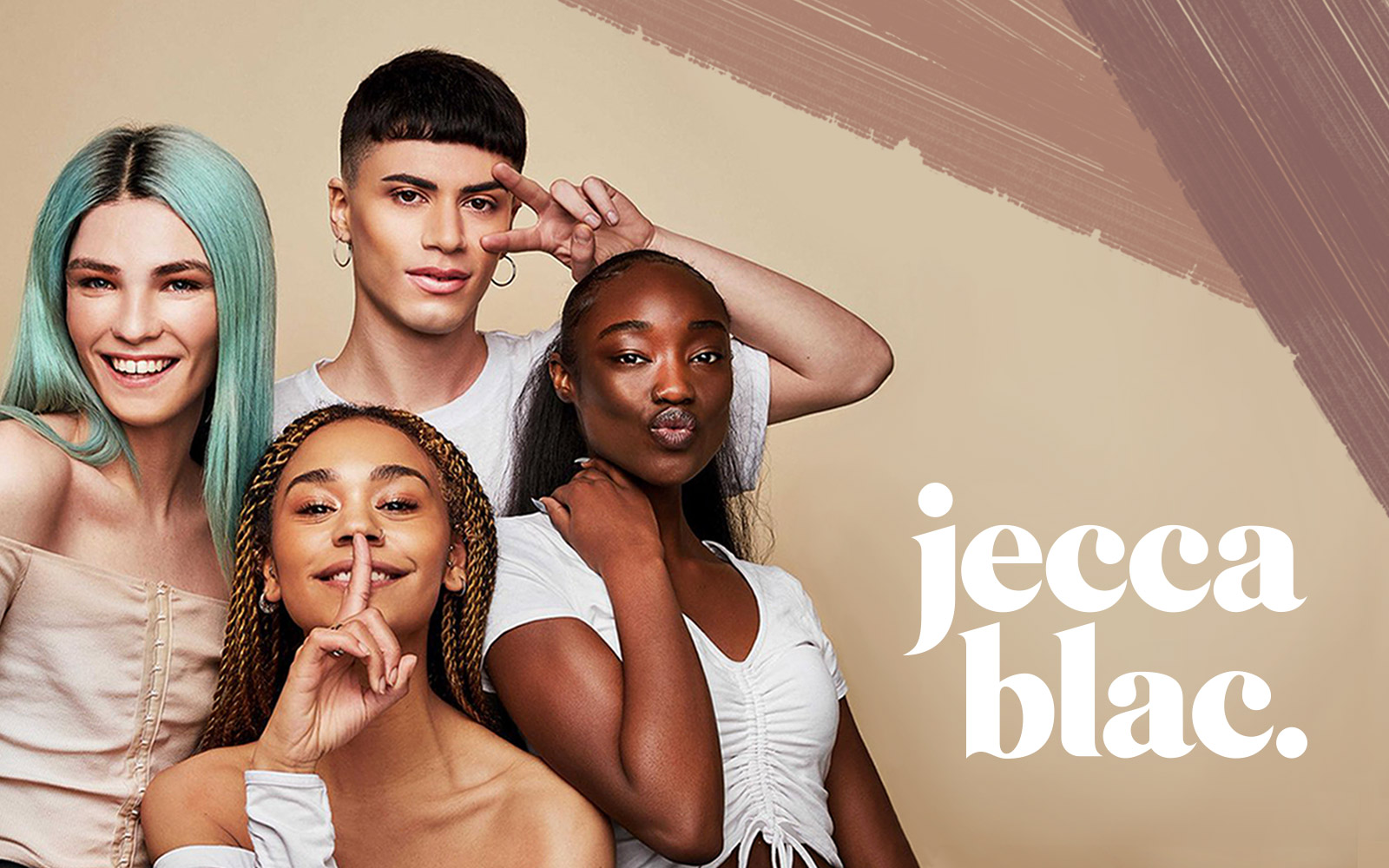
Source: Ampersam Studio
Jecca Blac‘s tagline is “makeup has no gender”, which represents their inclusivity pretty well. Jessica Blackler created the brand to offer a safe space for transgender women to learn, explore, and experiment with makeup.
They focus on gender-neutral products and donate part of their profits to a charity called Mermaids, which works to raise awareness about gender identity in children and young adults. They also employ a team of transitioning trans women to provide financial and emotional stability during probably, one of the most trying times in their lives.
9. Milk Makeup
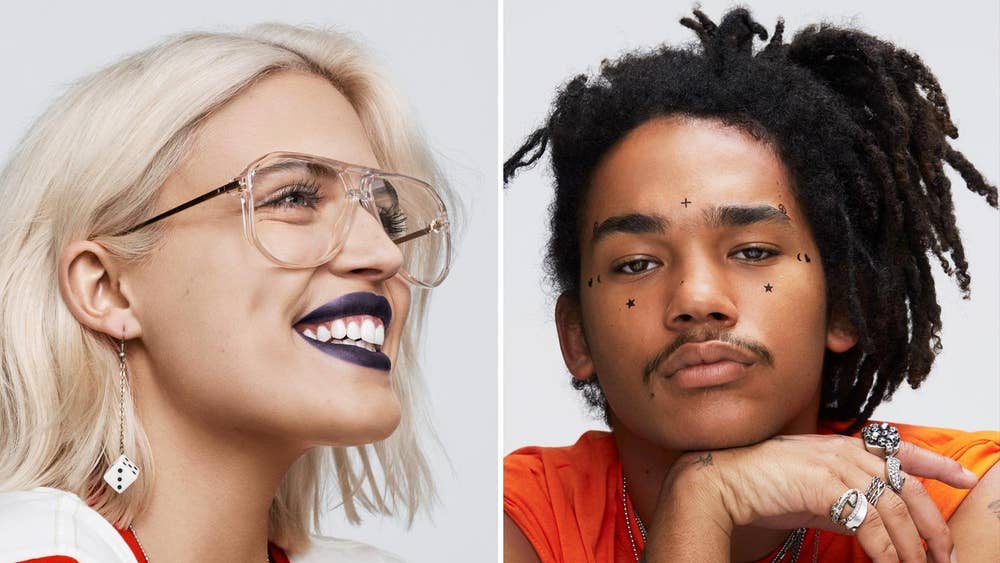
Source: Standard.co.uk
Milk Makeup is every millennial’s, little darling. Its core values are diversity, inclusivity, and freedom. Their goal is to allow everyone to have the looks they want, whether it’s the fresh-face vibes or the nightlife makeup. They want to encourage everyone, from every gender, age, and skin tone, to experiment with makeup and find their way to self-express through it. Apart from that, their products are paraben & cruelty-free, and entirely vegan.
10. Live Tinted
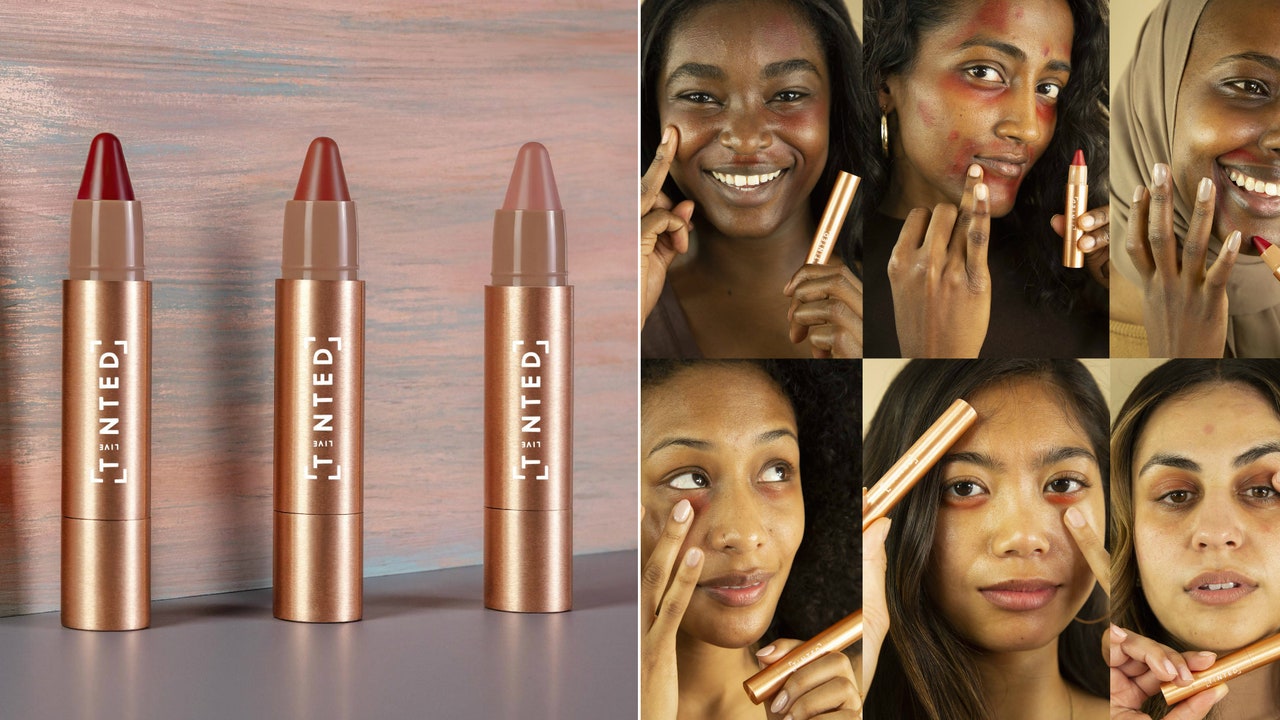
Source: Allure
Live Tinted is a brand and digital community that aims to help underrepresented people be proud of their identities and cultures. For them, no one is “too” anything; everyone is enough.
The Huestick in Found is an ultra-creamy eye, lip, and cheek multi-stick with natural pigments that adapt to your skin’s tone and undertone. It’s also vegan, non-comedogenic, hypoallergenic, and cruelty-free – and also has a lot of good stuff for your skin such as hyaluronic acid, squalane, and vitamin C + E.
Conclusion: A Celebration of Beauty in All Its Forms
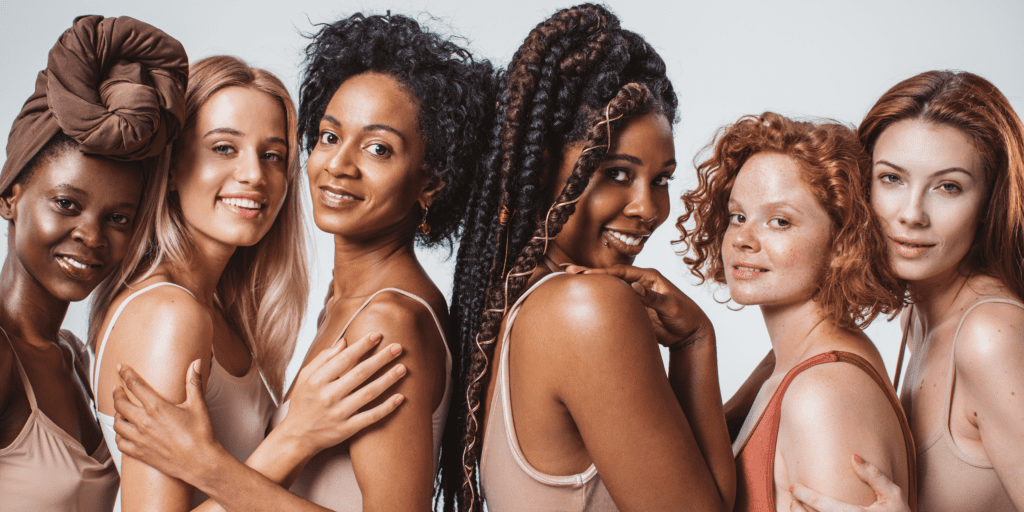
The movement for inclusive makeup is a celebration of diversity and a rejection of narrow beauty standards. It’s about empowering everyone to express themselves through makeup and feel confident in their own skin. As the industry continues to evolve, we can expect to see even more innovative products, wider shade ranges, and a beauty space that truly welcomes everyone.
But remember, real change comes from the power of our wallets. By supporting inclusive brands that prioritize diverse shade ranges, formulations for all skin types, and age-inclusive marketing, we send a powerful message. These brands are the ones moving the needle in the beauty industry, and with your support, they can continue to pave the way for a more equitable future.
Want to learn more about makeup application for all skin tones and abilities? I teach inclusive makeup education through my online courses – check out my shop to find resources that can help you enhance your skills and embrace your unique beauty! Let’s celebrate makeup for everyone, together.
Beauty is about perception, not about make-up. I think the beginning of all beauty is knowing and liking oneself. You can't put on make-up, or dress yourself, or do you hair with any sort of fun or joy if you're doing it from a position of correction.
kevyn aucoin
